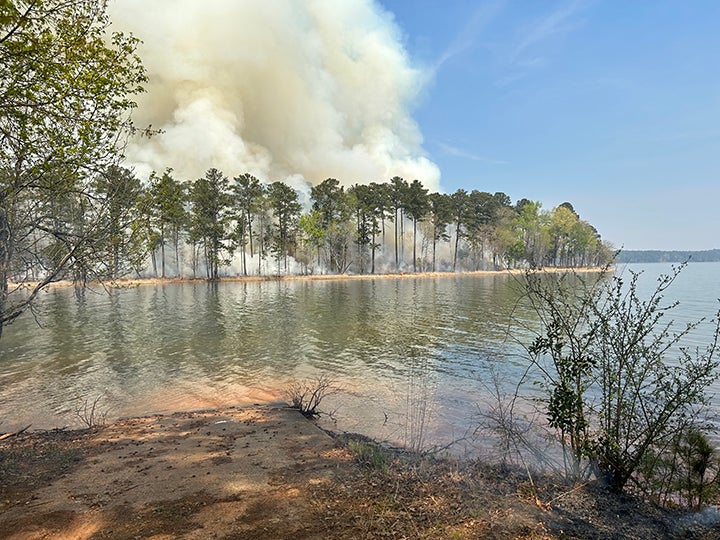Humans have lived near rivers since the dawn of time and while rivers sustain life, they also, at times, have been a destructive force; they were, that is, until humans took a cue from beavers and learned how to build dams.
Clark Hill Dam, officially known as Thurmond Dam, has been significant to the health, safety and growth of Augusta since it came on line in 1953.
Ranger David Quebedeaux of the U.S. Army Corps of Engineers says the dam and Clark Hill, the lake it created, contribute all kinds of positives to the community, but flood control is its primary function.
“Clearly, flood control is the biggest benefit to Augusta while also providing clean and economical hydropower,” Quebedeaux said.
Prior to the dam, Augusta flooded regularly. Homes and businesses in the downtown area almost needed to be built on stilts as the river would breach the banks and turn the area into a temporary lake.
Flooding also overloaded the primitive sewer system, which would wash raw sewage into the streets and buildings creating health concerns.
After the flood of 1908, city leaders knew something had to be done, and construction of the Augusta Levee began in 1913, according to the Historical Marker Database; however, in 1929, the river surged some 45 feet, proving that a simple levee was not enough to tame Mother Nature.
According to the book “History of the Savannah District, 1829 – 1989” by Henry E. Barber and Allen R. Gann, Congress authorized the building of Clarks Hill in 1945 and a delegation of Augustans including Mayor Dick Allen, Lester Moody, chairman of the Chamber of Commerce and Tom Hamilton, editor of the Augusta Chronicle kept up the pressure until boots were on the ground and concrete poured.
It would take the better part of a decade to build the dam and install the seven massive generators that generate 53,000 Megawatts of power.
While the dam was part of the Rural Electrification Administration, the dam, ironically, had a massive impact on the rural towns of Lisbon and Petersburg. Residents of those towns had to relocate as the entire area was flooded to create Clark Hill Lake.
During periods of drought when lake levels take a dive, the remains of buildings can be seen poking out of the water.
According to Quebedeaux, having the dam and lake not only provides electricity, flood control and recreation, but has a large impact on the local timber industry. The Corps of Engineers manages some 70,000 acres of timber forests.
The good folks out in California, who chronically suffer from massive uncontrolled forest fires, could study the forest management performed by the Corps, which regularly conducts controlled burns in the area.

Quebedeaux says that helicopters drop special “ping pong balls” filled with fuel. The balls are set to explode just above the treeline, setting the forest floor on fire.
“It burns off the organic forest litter which is good for wildlife and pretty much eliminates the chance of uncontrolled forest fires,” Quebedeaux said.
Since the building of the dam, Augusta has only suffered one major flood; however, even in that instance, the dam and levee did their jobs; it was human error that caused the flood.
In October of 1990, Augusta was inundated with eight inches of rain in a mere eight hours, swelling the river. The dam system worked, but one minor oversight of leaving the Augusta Canal flood gates open caused the canal to overflow its banks.
So, the last major flood in Augusta was not caused by the river, but the canal.
…And that is something that you may not have known.










